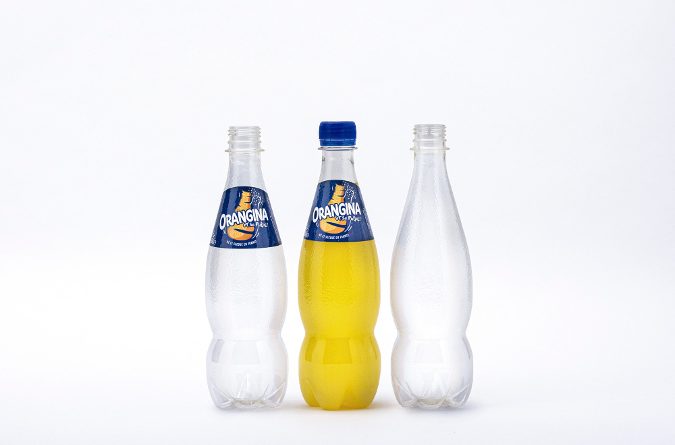Suntory introduces 100% plant-based PET bottle prototypes
Suntory Group announced that the company has created a prototype PET bottle made from 100% plant-based materials. The prototype has been produced for the company’s Orangina brand in Europe along with its bottled mineral water brand in Japan, Suntory Tennensui. This announcement is claimed to mark a breakthrough after a nearly decade-long partnership with the US-based sustainable technology company Anellotech.
PET is produced using two raw materials, 70% terephthalic acid (PTA) and 30% mono ethylene glycol (MEG). Suntory’s prototype plant-based bottle is made by combining Anellotech’s new technology, a plant-based paraxylene derived from wood chips, which has been converted to plant-based PTA, and pre-existing plant-based MEG made from molasses which Suntory has been using in its Suntory Tennensui brand in Japan since 2013.
Tsunehiko Yokoi, Executive Officer of Suntory Monozukuri Expert Ltd., said “The significance of this technology is that the PTA is produced from non-food biomass to avoid competition with the food chain, while MEG is also derived from non-food grade feedstock.”
This development is an additional step towards achieving Suntory Group’s ambition to eliminate use of all petroleum-derived virgin PET plastic bottles globally by transitioning to 100% recycled or plant-based PET bottles by 2030. The fully recyclable prototype plant-based bottle is estimated to significantly lower carbon emissions compared to petroleum derived virgin bottle.
“This achievement is the result of over ten years of thorough and painstaking development work by Anellotech’s dedicated employees, together with Suntory and other partners,” said David Sudolsky, President and CEO of Anellotech. “The competitive advantage of Anellotech’s Bio-TCat generated paraxylene is its process efficiency (it uses a single-step thermal catalytic process by going directly from biomass to aromatics (benzene, toluene and xylene)), as well as the opportunity it creates for a significant reduction in greenhouse gas emissions as compared to its identical fossil-derived paraxylene in the manufacture of PET, especially as it generates required process energy from the biomass feedstock itself.”
Suntory aims to commercialise this 100% plant-based bottle as soon as possible to meet its 2030 fully sustainable PET bottle goal.

